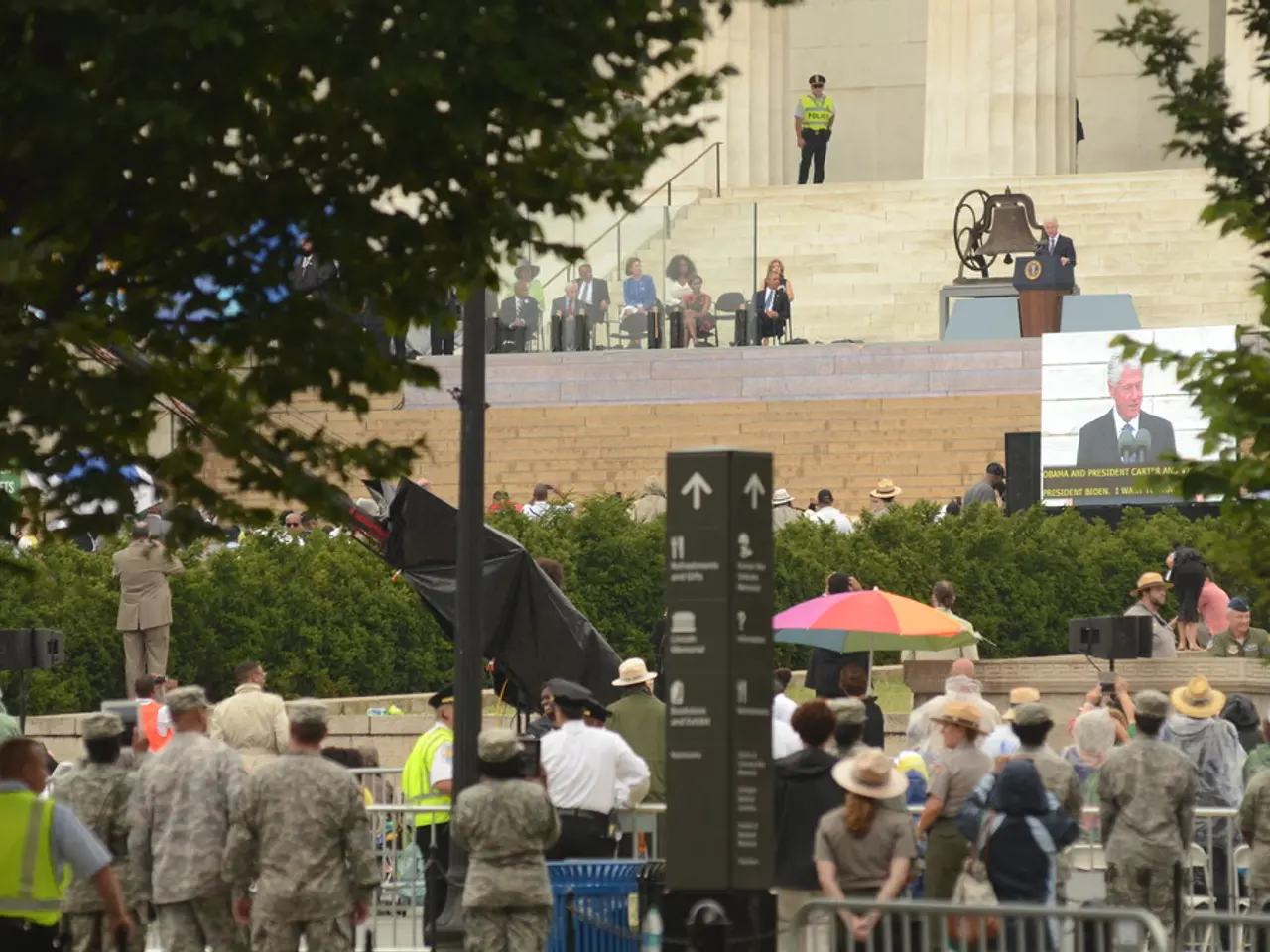Admission of Mistakes by Thomas de Maizière: 'I Lacked Proper Preparation'
Thomas de Maizière, the former Interior Minister of Germany during the 2015 refugee crisis, recently reflected on his tenure in a podcast episode titled "Dawn Break." At 71 years old, de Maizière criticized his time in office, acknowledging that Germany was not well-prepared for the crisis.
During the podcast, de Maizière defended the suspension of conscription he implemented in 2011, stating that the conscription rate was around ten to fifteen percent at the time. He emphasized the need for a large reserve of soldiers for both national defense and logistical tasks, and expressed support for a general service duty for men and women.
The 2015 refugee crisis presented significant challenges due to the high number of asylum seekers, particularly those escaping conflict zones like Syria. De Maizière faced criticism for initially underestimating the crisis magnitude, resulting in slow and overwhelmed asylum processing procedures. The surge in asylum seekers created logistical and integration challenges, and fueled societal divisions over immigration policy.
Refugees were distributed among the federal states and municipalities in Germany, but critics argued that the government's longstanding principle of "Germany not being a land of immigration" complicated integration efforts. Some experts claimed the policy focus was insufficiently inclusive of foreigners and refugees, failing to adequately address “German identity in a pluralist society.”
Controlling borders and migration flows while complying with EU and international law posed a significant challenge. The Federal Police began to control all German borders to curb irregular migration and Islamist threats, reflecting difficulties in border management. The rise of right-wing populist movements such as Pegida was partly attributed to perceived policy failures to adequately balance immigration control with social integration.
De Maizière did not express regret over the suspension of conscription during the podcast. He argued that in the context of Germany’s changing security landscape, the professionalization of the military was better suited. However, this decision attracted debate within the broader security context, especially amid concerns over homeland security and integration of refugees who might face complex social and security challenges.
The refugee crisis reshaped German immigration politics and policies, underpinning ongoing controversies about national identity, border control, and social cohesion. Merkel’s famous “Wir schaffen das” ("We can do this") slogan symbolized initial openness, but later asylum policies were tightened to address practical and political pressures, reflecting adaptability in response to the crisis. Border controls and stricter deportation rules were gradually introduced, but debates continue on balancing rights, security, and effective migration governance.
In a surprising turn, an economist's view on migration was shared during the podcast, stating that more women are needed, fewer men. This perspective adds to the ongoing discourse on migration and its impact on society.
Despite the challenges faced during his tenure, de Maizière stated that Germany did many things better than some neighboring countries in immigration policy. However, the podcast did not discuss any new information about the entry and integration of refugees or homelessness among refugees in Germany. The impact of the suspension of conscription on the refugee crisis of 2015 was also not discussed. The podcast did not provide any indication of de Maizière's current political affiliation.
Read also:
- Court petitions to reverse established decision on same-sex marriage legalization
- Trump's enforcement actions in Washington D.C.: Insights from the political arena
- Chinese Ambassador issues stern message to India regarding Trump's tariffs in midst of escalating trade feuds
- Aircraft collides with another one on the runway during landing at Montana airport, igniting flames






